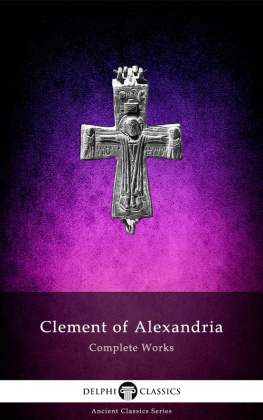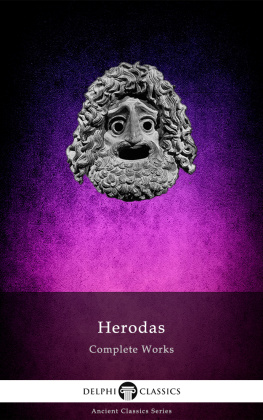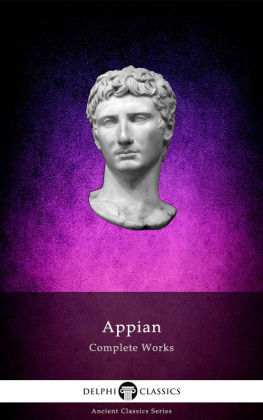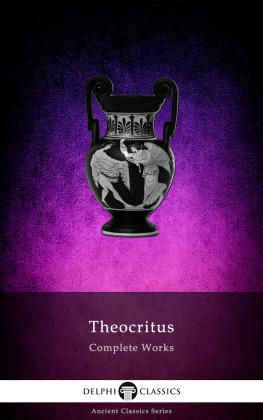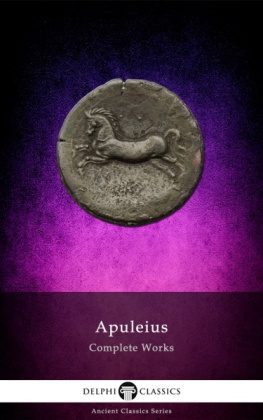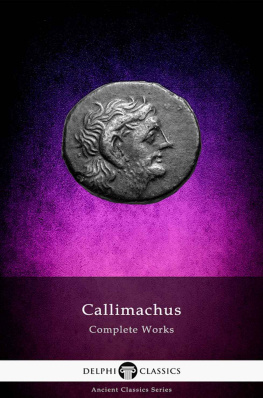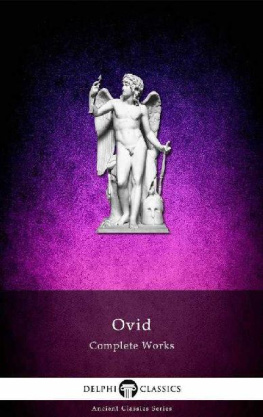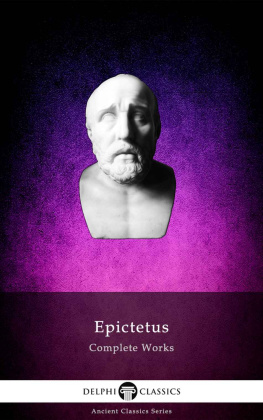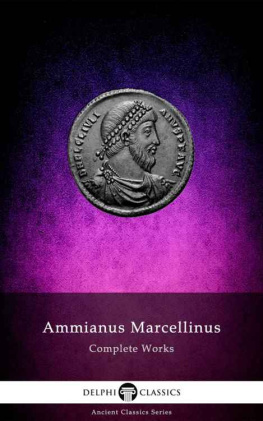Clement of Alexandria - Delphi Complete Works of Clement of Alexandria (Illustrated)
Here you can read online Clement of Alexandria - Delphi Complete Works of Clement of Alexandria (Illustrated) full text of the book (entire story) in english for free. Download pdf and epub, get meaning, cover and reviews about this ebook. year: 2016, publisher: Delphi Classics, genre: Science. Description of the work, (preface) as well as reviews are available. Best literature library LitArk.com created for fans of good reading and offers a wide selection of genres:
Romance novel
Science fiction
Adventure
Detective
Science
History
Home and family
Prose
Art
Politics
Computer
Non-fiction
Religion
Business
Children
Humor
Choose a favorite category and find really read worthwhile books. Enjoy immersion in the world of imagination, feel the emotions of the characters or learn something new for yourself, make an fascinating discovery.
- Book:Delphi Complete Works of Clement of Alexandria (Illustrated)
- Author:
- Publisher:Delphi Classics
- Genre:
- Year:2016
- Rating:4 / 5
- Favourites:Add to favourites
- Your mark:
Delphi Complete Works of Clement of Alexandria (Illustrated): summary, description and annotation
We offer to read an annotation, description, summary or preface (depends on what the author of the book "Delphi Complete Works of Clement of Alexandria (Illustrated)" wrote himself). If you haven't found the necessary information about the book — write in the comments, we will try to find it.
The famous third century Father of the Church, Clement of Alexandria was an eclectic neo-Platonic philosopher, who later found a new philosophy in Christianity, drawing inspiration from not only the Bible, but also pagan beliefs. Delphis Ancient Classics series provides eReaders with the wisdom of the Classical world, with both English translations and the original Greek texts. This comprehensive eBook presents Clements complete extant works, with beautiful illustrations, informative introductions and the usual Delphi bonus material. (Version 1)
- Features the complete extant works of Clement, in both English translation and the original Greek
- Concise introductions to the works
- Provides two translations of the key work PROTREPTICUS (Exhortation) G. W. Butterworth and William Wilson
- Includes Butterworths translations from the Loeb Classical Library edition of Clement
- Excellent formatting of the texts
- Easily locate the sections you want to read with individual contents tables
- Includes Clements rare fragments, first time in digital print
- Features two bonus biographies discover Clements ancient world
- Scholarly ordering of texts into chronological order and literary genres
Please visit delphiclassics.com to explore our range of Ancient Classics titles or buy the entire series as a Super Set
CONTENTS:
The Translations
PROTREPTICUS (Exhortation)
PAEDAGOGUS (Tutor)
STROMATA (Miscellanies)
SALVATION FOR THE RICH, ALSO KNOWN AS WHO IS THE RICH MAN WHO IS SAVED?
EXHORTATION TO ENDURANCE OR TO THE NEWLY BAPTIZED
FRAGMENTS
The Greek Texts
LIST OF GREEK TEXTS
The Biographies
INTRODUCTION TO CLEMENT by G. W. Butterworth
CLEMENT OF ALEXANDRIA by Arthur Cleveland Coxe
Please visit delphiclassics.com to browse through our range of exciting titles
Clement of Alexandria: author's other books
Who wrote Delphi Complete Works of Clement of Alexandria (Illustrated)? Find out the surname, the name of the author of the book and a list of all author's works by series.

